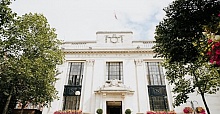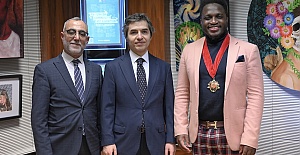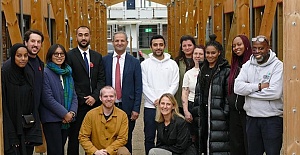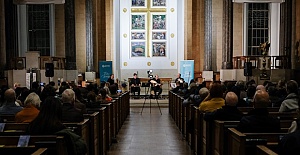In a court in New York, on the 9th of May this year, Abu Hamza al-Masri was found guilty of terrorist related charges. His extradition from the UK to face US charges took 10 years to bring about and this, after he had served seven years for inciting murder and racial hatred in the UK. In the meantime, over in Jordan and in an analogous case, radical Islamist cleric Abu Qatada is being held pending trial after also spending a decade fighting extradition to face charges based on plotting to carry out terror attacks on tourists during the millennium celebrations in Jordan. In the latter case, the British taxpayer faced a £1.7M legal bill, in addition to the costs of not only keeping him in a Category A (High Security) prison, plus the costs of maintaining his huge family during his detention. In both cases, the delays in extraditing these men have been greatly enhanced by the European Court of Human Rights, the body who have recently made a highly controversial judgement in connection with Cyprus.
Born Mustafa Kamel Mustafa in Alexandria, Egypt, on 15 April 1958, Abu Hamza was the son of a naval officer and a primary school headmistress. He initially studied civil engineering before leaving for England in 1979.
In London, one of his first jobs was as a nightclub bouncer. He married a British woman who he says encouraged him to embrace Islam. He decided to resume his studies at Brighton Polytechnic and gained a civil engineering degree, joining the Institution of Civil Engineers where he remained a member until 1994. His marriage rapidly broke down but he later remarried and had seven children. In the early 1980s the young Abu Hamza started to show an interest in Islam and politics. He was heavily influenced by the Iranian Revolution. In 1987, after meeting Abdullah Azzam, an influential supporter of the notion of Muslims being obliged to fight jihad, Abu Hamza moved to Afghanistan. It was around this time that he lost an eye and both his hands. Accounts of exactly how and where the accident actually happened, conflict.
He returned to the UK in 1993 for treatment. But within two years he had left Britain again to support Bosnian Muslims during the break-up of the former Yugoslavia. He arrived at Finsbury Park mosque, London in 1997 where he was to consolidate his hold. In 2004, he was convicted on 11 out of 15 terror related indictments.
In the case of Palestinian-born Abu Qatada, Britain was finally able to expel the father-of-five after the respective governments formally approved a treaty guaranteeing that evidence obtained by torture would not be used against him in any retrial. Abu Qatada was condemned to death in 1999 for conspiracy to carry out terror attacks including on the American school in Amman but the sentence was immediately reduced to life imprisonment with hard labour.
In 2000, he was sentenced to 15 years for plotting to carry out terror attacks on tourists during the millennium celebrations in Jordan where he faces retrial of original convictions which had been made in absentia. The radical cleric had been in and out of British prisons since 2002, although he has never been convicted of any crime, and London had been trying to deport him since 2005. British and European courts blocked his expulsion on the grounds that evidence might be used against him that had been obtained by torture. But after years of legal battles his lawyers conceded that he would return there once the fair trial treaty was ratified by the Jordanian parliament.
In both cases, both British and ECHR courts were extremely reluctant to sanction extradition to either appellant country, whilst respective lawyers placed great reliance on the latter court system to effectively shield their clients from justice. In the latter, however of the ECHR and Turkey, specifically at least in respect of the recent Cyprus-related ruling, this seems not only most ill-timed but more seriously, politically influenced too, which no court should ever be influenced by.
Of equal, if not greater importance is the essential need to speed up the extradition process in cases such as these, where not only national security is at risk, but lives could be at stake too. It is simply unacceptable that courts can in anyway be influenced politically, just as it is equally so, that individuals could be sent to a country where the judicial process could be such, as to deny fairness of trial or where inhumane practises might be employed. Britain must address these issues as well as their relationship with the ECHR, if we are not to be a 'safe-haven' for terrorists.
Chris Green
www.besparmakmediaservices.co.uk


 Prime Minister Keir Starmer's 2025 Easter message
Prime Minister Keir Starmer's 2025 Easter message After Nesil Caliskan a by-election will be held in Jubilee ward in Enfield
After Nesil Caliskan a by-election will be held in Jubilee ward in Enfield Publishing the analysis, Labour’s Cllr Ergin Erbil said Everybody in Enfield deserves basic rights
Publishing the analysis, Labour’s Cllr Ergin Erbil said Everybody in Enfield deserves basic rights Gaza-Israel conflict Statement from Cllr Ergin Erbil, Leader of Enfield Council
Gaza-Israel conflict Statement from Cllr Ergin Erbil, Leader of Enfield Council The European Union called on Turkey to uphold democratic values
The European Union called on Turkey to uphold democratic values Turkish citizens in London said Rights, Law, Justice
Turkish citizens in London said Rights, Law, Justice The Council of Turkish Cypriot Associations Geneva response letter
The Council of Turkish Cypriot Associations Geneva response letter Sustainable Development and ESG, Will This Become the Course for Turkic World
Sustainable Development and ESG, Will This Become the Course for Turkic World The 'Prince of Paris' has impressed in his first EuroLeague season
The 'Prince of Paris' has impressed in his first EuroLeague season Saran Media And Euroleague Basketball Extend Media Rights Partnership for Four More Years
Saran Media And Euroleague Basketball Extend Media Rights Partnership for Four More Years Will Rangers be Jose Mourinho’s next victim?
Will Rangers be Jose Mourinho’s next victim? Jose Mourinho's Fenerbahce face Rangers on Thursday
Jose Mourinho's Fenerbahce face Rangers on Thursday Barclays has become the biggest UK lender so far to cut mortgage rates
Barclays has become the biggest UK lender so far to cut mortgage rates THE SPRING STATEMENT EXPLAINED, UK ECONOMIC OUTLOOK AND GROWTH FORECASTS
THE SPRING STATEMENT EXPLAINED, UK ECONOMIC OUTLOOK AND GROWTH FORECASTS Launch of Made in Enfield gift shop to celebrate local artists and designers
Launch of Made in Enfield gift shop to celebrate local artists and designers Trial used smart Wi-Fi sensors for live building occupancy data to optimise
Trial used smart Wi-Fi sensors for live building occupancy data to optimise

















